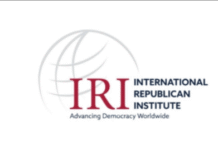By BenarNews Staff on Feb 08, 2022
Bangladesh should boost security in Rohingya camps, allow refugees to work and pursue education, and begin cooperation with the international community to resettle the stateless minority from Myanmar in a third country, a U.K.-based NGO said in a report released Tuesday.
The recommendations by the Burma Human Rights Network (BHRN) were based on a survey it did last year of Rohingya living in refugee camps in Cox’s Bazar, a district in southeastern Bangladesh near the border with Myanmar’s Rakhine state.
A majority of the surveyed refugees said that the crowded camps were rife with crime and violence, and that they would prefer to be repatriated to a third country, according to the group’s report, titled “We Also Have Dreams.”
“Security officials should increase their presence in areas dominated by criminal organizations or armed groups and ensure the safety of the community. In doing so, they must also ensure they do not arbitrarily harass, arrest, or harm civilians,” said the 57-page report based on a survey of 29 refugees across 10 camps.
“Arson or similar crimes against the Rohingya community must be thoroughly investigated and the authorities must be transparent about their investigations to foster the trust the community places on them ongoing safety and quality of life issues for Rohingya refugees in Bangladesh.”
The Rohingya are legally prohibited from working, but they are willing and able and should be allowed to so they can support themselves financially and are able to afford a little more than only the basic necessities provided to them, the report said.
“Many Rohingya interviewed for this report spoke positively about their ability to work and support themselves in Burma compared to how they are living in Bangladesh, even though they faced harsh restrictions on employment and labor in Burma,” the Burma Human Rights Network reported.
“The willingness to work and the many skill sets the Rohingya bring with them should be encouraged by Bangladesh rather than legally prohibited. This would help ease the burden on aid agencies, allow for greater autonomy for refugees, and could help the economy of the host communities grow as well,” it added.
Shah Rizwan Hayat, Bangladesh’s commissioner for refugee relief and repatriation, said local authorities had to restrict the movements of Rohingya and keep them confined to the camps in order to prevent potential trouble between members of the refugee community and the surrounding host community in Cox’s Bazar.
“Making a demand is easy but managing this huge number of people is a tough job for the host-country. There is no scope for allowing Rohingya people [to pursue] formal education here.”
A local police official, meanwhile, responded to concerns conveyed in the report about criminality in the camps.
“Camp dwellers are now living here with enough safety and security. The camps have now become unsafe for miscreants,” M. Kamran Hossain, additional superintendent of police for the Armed Police Battalion in Cox’s Bazar, told BenarNews on Tuesday.
‘Ready to go to another country’
With the survey by BHRN showing that 63 percent of refugees would want to be repatriated to a third country if it were an option, the report recommended that the international community work with the Bangladesh government on the issue.
“The international community must exercise diplomatic efforts with Bangladesh to allow for the [resettlement] of Rohingya into third countries,” the report said.
If resettlement is allowed, the chances of Rohingya fleeing with the help of human traffickers would decrease as would their unsafe passage in rough seas, the rights group said.
“Yes, we would want to be resettled into a third country. We are ready to be resettled into a third country. If we can’t return to Myanmar with the resolution of our case, we are ready to go to another country,” a 38-year-old woman told Burma Human Rights Network.
Meanwhile the shadow civilian National Unity Government in Myanmar must also have a clear repatriation timetable, the report said, because all the Rohingya refugees surveyed had said “they wanted to return to Burma despite the atrocities the Burmese military committed against them.”
“When asked what change they wanted to see in the next five years the majority of refugees said they wanted to return to Burma,” the report said.
“When asked what needed to change in order for them to go back to Burma, the majority of Rohingya refugees interviewed by BHRN said equal rights (ethnic and citizenship) and safety had to be ensured for them to be able to return.”
Additionally, “international pressure was raised as a requirement several times, implying that nothing could change if the world didn’t raise serious pressure on Burma to equitably return refugees to the country.”
Abdur Rahman contributed to this report from Cox’s Bazar, Bangladesh.










